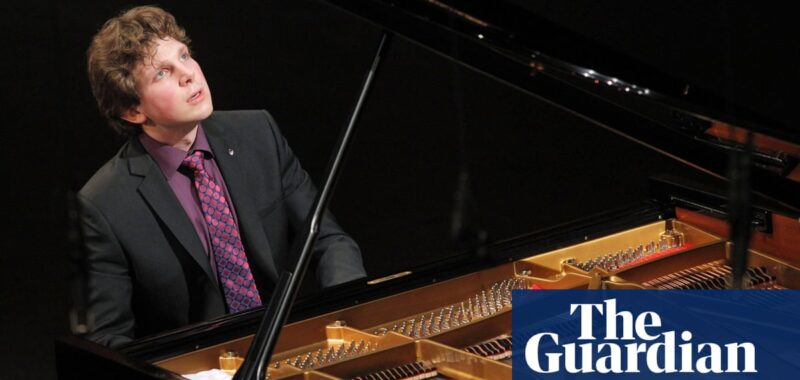The Melbourne Symphony Orchestra has said it made âan errorâ in cancelling the performance of an acclaimed pianist who dedicated a piece to slain journalists in Gaza.
Jayson Gillham was scheduled to perform Mozart and Brahms at the Melbourne Town Hall on Thursday with the MSO, but was removed from the event after the orchestra said he made âa series of introductory remarksâ that were âbeyond the remit of his contractâ at a previous performance.
While the event was initially scheduled to continue without Gillham it has now been cancelled altogether, the MSO confirmed on Thursday, citing safety concerns. There were plans under way to reschedule a performance with Gillham, it said.
âThe MSO acknowledges that an error was made in asking Jayson to step back from his performance on Thursday 15 August,â it said in a statement on the event page. âWe have been engaging constructively with Jayson and his management and are seeking to reschedule the concert.â
The MSO said it maintains that âa concert platform is not an appropriate stage for political commentâ, but acknowledges âJaysonâs concerns for those in the Middle East and elsewhereâ.
âWe recognise the strength of feelings of all parties on this matter and particularly acknowledge the dedication and commitment demonstrated by all our musicians and staff this week,â the statement read.
At a previous concert at Iwaki Auditorium in Southbank on Sunday, Gillham had performed a number of songs, including the world premiere of Witness by Connor DâNetto â which the MSO said was a late addition to the program.
The five-minute piece is dedicated to the journalists of Gaza and was written for Gillham, according to DâNettoâs website. Gillham was removed from Thursdayâs concert after remarks he made while introducing the piece, the MSO said at the time.
âOver the last 10 months, Israel has killed more than one hundred Palestinian journalists,â Gillham told the crowd on Sunday, according to his management.
âA number of these have been targeted assassinations of prominent journalists as they were travelling in marked press vehicles or wearing their press jackets. The killing of journalists is a war crime in international law, and it is done in an effort to prevent the documentation and broadcasting of war crimes to the world.
âIn addition to the role of journalists who bear witness, the word witness in Arabic is shaheed, which also means martyr.â
Israelâs offensive in Gaza has become the deadliest conflict for journalists in recent history, with the US-based Committee to Protect Journalists recording at least 113 killings of Palestinian journalists and media workers in the war in Gaza.
The Israeli military has said there is âno policy of targeting media personnelâ in Gaza, but also that it sees âno differenceâ between the armed wing of Hamas and those working for the media outlet al-Aqsa, widely considered to be its official network.
after newsletter promotion
In response to Gillham being removed from the concert, the Australian Music Studentsâ Association launched an open letter and said it was âintensely disappointedâ and strongly condemned the decision.
âSupport for Gaza and opposition to a genocide are not personal political views; opposing a genocide is not a political matter. They are the crux to the work, and it would be an inaccurate performance not to mention them; any attempt to politically sanitise the work would render it useless,â the open letter reads.
In a statement on Wednesday, the Media, Entertainment and Arts Alliance chief executive, Erin Madeley, said Gillham had been treated âappallinglyâ by the management of MSO and it should take full responsibility to ârectify a crisis of its own makingâ.
âThe response by the management of MSO has been disproportionate and is offensive to the principles of artistic expression. It has caused enormous hurt and distress to Jayson and is disrespectful to his fellow musicians â and to our journalist colleagues in Gaza,â Madeley said.
âAs the union for all media and creative workers â including musicians and journalists â MEAA supports the freedom to express opinions without fear of silencing, censorship or retribution.â
The composer of Witness, DâNetto, previously described the piece as a âslightly melancholy, meditative pieceâ contemplating social media and how people are seeing âhorrific imagesâ â not just from Gaza, but around the world.
âOur gut reaction might be to look away [but] it is each of our responsibility to at a minimum acknowledge these things.â

